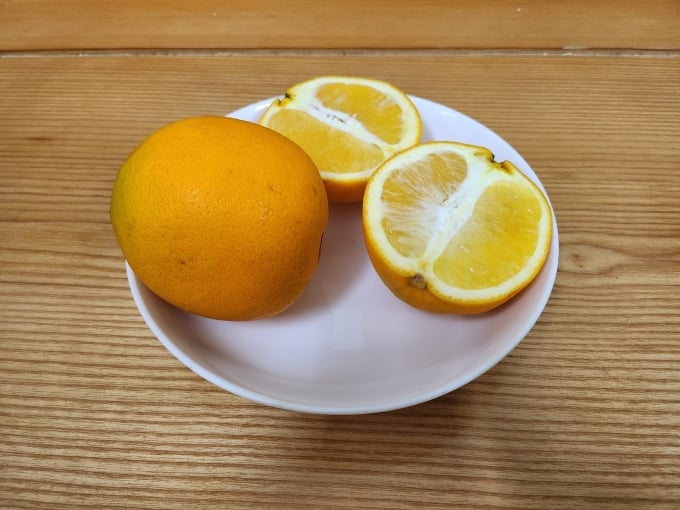Eating bananas, bell peppers, fish, leafy green vegetables, carrots, and citrus fruits regularly may reduce the risk of hearing loss.
The sensitive hair cells in the inner ear convert sound waves into electrical impulses that the brain interprets as sound. Poor blood circulation or insufficient oxygen damages these sensitive cells, leading to hearing loss. Many studies suggest that a healthy diet can reduce the risk of this condition.
Bell pepper
Several studies have shown that people with age-related hearing loss often have low levels of folic acid. Therefore, everyone should ensure they get enough folic acid in their daily diet, and bell peppers are a rich source of this nutrient. On average, 100g of red bell peppers contain 70.2 micrograms, and 20.7 micrograms for green bell peppers.
Banana
As we age, the amount of fluid in our bodies and tissues decreases, contributing to hearing loss. Bananas are rich in potassium, which helps maintain hearing as we age by regulating fluid levels in the body.
Carrot
100g of carrots contain 16,706 IU of vitamin A. This nutrient helps prevent the production of free radicals that damage the delicate hair cells on the inside of the ear.

Oranges are rich in vitamin C, which helps prevent age-related hearing loss. Photo: Thanh Hy
Citrus fruits
Oranges, lemons, and other citrus fruits are rich in vitamin C, which helps eliminate free radicals that cause many age-related health problems, including hearing loss and ear infections. Additionally, these fruits contain folate (also known as vitamin B9), which helps produce red blood cells and reduces the risk of age-related hearing loss.
Fish
A 2023 study of over 100,000 people aged 40-70 by the University of Guelph, Canada, over three years showed that those who consumed more omega-3 DHA fatty acids experienced fewer hearing problems than those who consumed less omega-3 DHA fatty acids. Fatty fish are rich in omega-3 fatty acids, so everyone should add varieties like salmon and sardines to their daily diet.
Seafood
Zinc helps improve hearing health by supporting the immune system, thereby combating tinnitus. Oysters, lobsters, and crabs are rich in zinc. Supplementing zinc from plant sources such as oatmeal, yogurt, lentils, peanuts, cashews, mushrooms, kale, leafy green vegetables, garlic, and pumpkin seeds is also beneficial.
Egg
A 2022 study by the Baltimore Medical Center in the US found a link between vitamin D deficiency and neurogenic hearing loss. The authors concluded that vitamin D may play a crucial role in the auditory system. Eating eggs, which provide the body with vitamin D, may reduce the risk of hearing problems.
Huyen My (According to AARP )
| Readers can ask questions about ear, nose, and throat diseases here for doctors to answer. |
Source link



![[Photo] Enchanted by the deciduous forest during the leaf-changing season.](/_next/image?url=https%3A%2F%2Fvphoto.vietnam.vn%2Fthumb%2F1200x675%2Fvietnam%2Fresource%2FIMAGE%2F2026%2F02%2F04%2F1770196861704_2066642_8ffd5f25c3c9433be0e644abe71613ae.jpeg&w=3840&q=75)


























































![[Photo] Prime Minister Pham Minh Chinh presides over the regular Government meeting in January 2026.](/_next/image?url=https%3A%2F%2Fvphoto.vietnam.vn%2Fthumb%2F402x226%2Fvietnam%2Fresource%2FIMAGE%2F2026%2F02%2F04%2F1770209446450_hopcp-jpg.webp&w=3840&q=75)



































Comment (0)